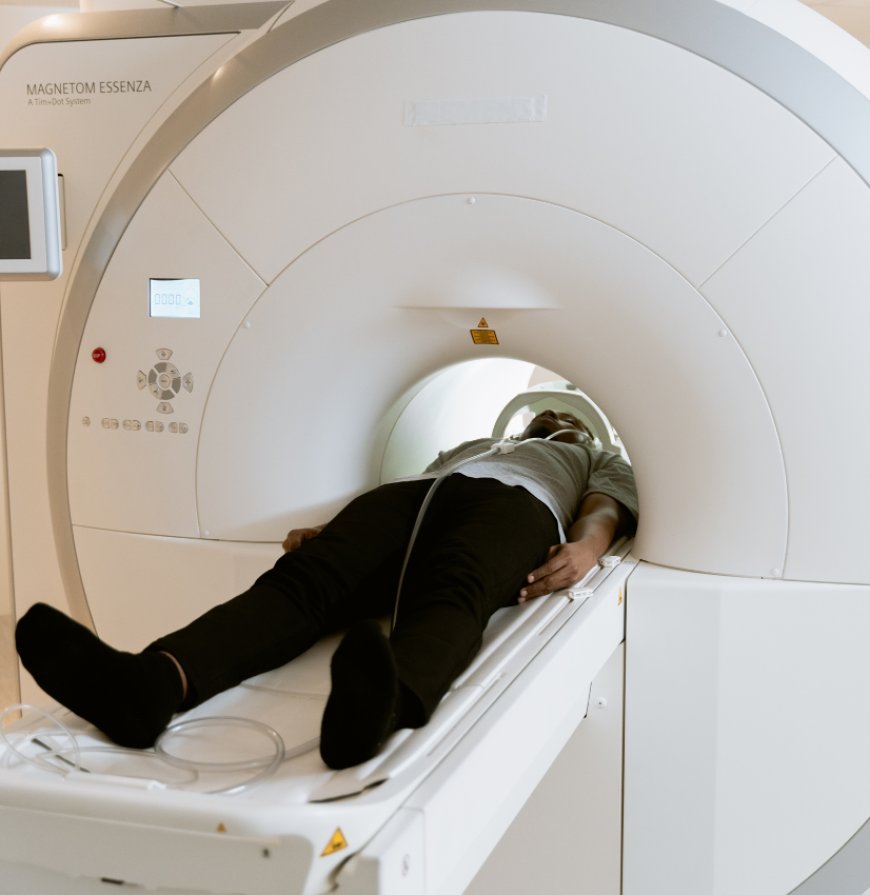How Do I Prepare for a Visit to a Radiology Centre Near Me?
Discover how to properly prepare for your radiology visit. Learn what to expect, how to dress, what documents to bring, and FAQs about common procedures at your local radiology centre.

Radiology has become a cornerstone of modern diagnostic medicine. Whether you're scheduled for a routine check-up or a specialized scan, understanding what lies ahead can make your visit to a radiology centre seamless and stress-free. From knowing what to wear to what documents to carry, preparing for your radiology appointment ensures accurate results, quick processing, and reduced anxiety. This guide walks you through every aspect of getting ready for your visit to a radiology centre near you.
1. Understanding the Purpose of Your Visit
What is Radiology?
Radiology is a branch of medicine that uses imaging technology to diagnose and sometimes treat diseases. It is broadly classified into two categories:
-
Diagnostic Radiology: Includes X-rays, MRIs, CT scans, and ultrasounds, which help identify health conditions.
-
Interventional Radiology: Involves minimally invasive procedures guided by imaging.
Why You Might Be Referred
Your physician may refer you to a radiology centre for several reasons:
-
Persistent pain or swelling
-
Injury or trauma
-
Preventive screening (e.g., mammograms)
-
Monitoring chronic diseases
-
Follow-up scans after treatment
Knowing the purpose behind your visit helps you mentally prepare and also ask the right questions during the appointment.
2. Before the Appointment: Key Preparations
Doctor’s Instructions Matter
Always follow your referring physician's guidelines regarding your radiology visit. These instructions may include dietary restrictions, medication schedules, or specific timing.
Fasting Requirements
Some imaging tests require fasting, such as:
-
Abdominal Ultrasound: You may need to avoid food and drink for 8-12 hours before the exam.
-
MRI with Contrast: May require limited intake to prevent nausea.
Check with your healthcare provider or the radiology centre to clarify if fasting is necessary.
Allergies and Medical History
Inform your radiologist or technician in advance if you:
-
Are allergic to iodine, shellfish, or contrast dye
-
Have asthma, kidney issues, or diabetes
-
Are pregnant or could be pregnant
This helps the team take appropriate safety measures.
3. What to Bring to a Radiology Centre
Essential Documents
Prepare the following before your visit:
-
Referral letter or form from your doctor
-
Photo ID (driver’s license or government ID)
-
Health insurance information, if applicable
-
Previous imaging records or medical history if relevant
Having these ready will speed up the check-in process.
Comfortable Clothing & Accessories
Your attire can impact imaging results. Wear loose, comfortable clothing without metal elements. Avoid:
-
Zippers, metal buttons
-
Jewelry, including piercings
-
Hairpins or clips
You may be asked to change into a gown depending on the test.
4. What to Expect During Your Visit
Check-In Process
It is advisable to arrive 15–30 minutes early. You will:
-
Register at the front desk
-
Provide your documents
-
Fill out any required medical forms
Interacting with Radiology Technicians
Radiology technicians will guide you through the procedure. They may ask questions about your symptoms, medical history, or medications.
Common Procedures: What Happens?
X-ray
-
Quick, painless
-
Used for bones, chest, or injury assessment
MRI (Magnetic Resonance Imaging)
-
Uses magnetic fields
-
No metal allowed in the room
-
Duration: 30-60 minutes
CT Scan (Computed Tomography)
-
Combines X-rays for cross-sectional images
-
May involve contrast dye
-
Duration: 10-30 minutes
Ultrasound
-
Uses sound waves
-
Common for pregnancy or soft tissue imaging
-
Duration: 30-45 minutes
Mammogram
-
For breast cancer screening
-
Slight pressure may cause discomfort
5. Mental and Emotional Preparation
Dealing with Claustrophobia (MRI)
If you are claustrophobic:
-
Request an open MRI if available
-
Practice deep breathing techniques
-
Discuss sedation options with your doctor
Managing Anxiety
It’s normal to feel nervous. Techniques to manage anxiety include:
-
Guided breathing or meditation
-
Asking the technician to explain each step
-
Bringing a friend or family member for support
6. Safety Guidelines and Precautions
Radiation Awareness
Most radiology procedures involve minimal radiation exposure. To enhance safety:
-
Lead aprons or shields may be used
-
Only necessary scans are recommended
Special Precautions
Pregnant Women
-
Always inform staff if you are pregnant
-
Alternatives like ultrasound may be used
Children and Elderly
-
Lower dosage settings
-
Extra care for comfort and stability
7. After the Procedure: What Next?
Post-Visit Instructions
Depending on the procedure:
-
Drink plenty of water to flush out contrast dye
-
Resume normal activities unless advised otherwise
-
Monitor for any allergic reactions if dye was used
When & How You Receive Results
-
Results are usually sent to your referring doctor
-
Expect a turnaround time of 24 to 72 hours
-
Some centres offer online portals for report access
8. Choosing the Right Radiology Centre Near You
What to Look For
-
Accreditation: Ensure the centre is certified
-
Technology: Updated machines and software
-
Staff Expertise: Qualified radiologists and technicians
-
Reviews: Look for patient testimonials and ratings online
Booking Tips
-
Call in advance or use online appointment systems
-
Ask about walk-in options for urgent imaging
-
Verify if insurance is accepted
Conclusion: Arrive Prepared, Stay Confident
Preparation is key when visiting a radiology centre. From understanding the purpose of your visit to knowing what to wear and what documents to carry, each step contributes to a smooth and efficient experience. By being informed and proactive, you not only reduce anxiety but also help radiologists capture accurate, high-quality images for better diagnosis.
Frequently Asked Questions (FAQs)
1. How early should I arrive at the radiology centre?
Arrive 15–30 minutes before your scheduled appointment to allow time for check-in and any necessary paperwork.
2. Can I eat before my radiology appointment?
It depends on the type of scan. For example, fasting is required for abdominal ultrasounds and some MRIs with contrast.
3. What should I wear to a radiology appointment?
Wear loose, comfortable clothes without metal. Avoid jewelry, metal accessories, and bring a change of clothes if needed.
4. Will I feel any pain during the procedure?
Most imaging procedures are painless. You may feel slight discomfort from contrast dye or having to lie still.
5. Can I bring someone with me?
Yes, but they may need to wait outside depending on the centre’s policy and the type of procedure.
6. How long do radiology tests usually take?
-
X-ray: 10–15 minutes
-
MRI: 30–60 minutes
-
CT Scan: 15–30 minutes
-
Ultrasound: 30–45 minutes
7. Is radiology safe for pregnant women?
Inform your radiologist if you’re pregnant. Ultrasound is generally safe; X-rays and CT scans are usually avoided unless absolutely necessary.
8. What is contrast dye and is it safe?
Contrast dye highlights areas of your body during scans. It is safe for most people but not recommended for those with certain allergies or kidney conditions.
9. Can I drive home after the procedure?
Yes, unless you've had sedation or feel unwell after a contrast injection.
10. How long does it take to get results?
Reports are typically available within 1 to 3 business days and are sent to your doctor.





































































